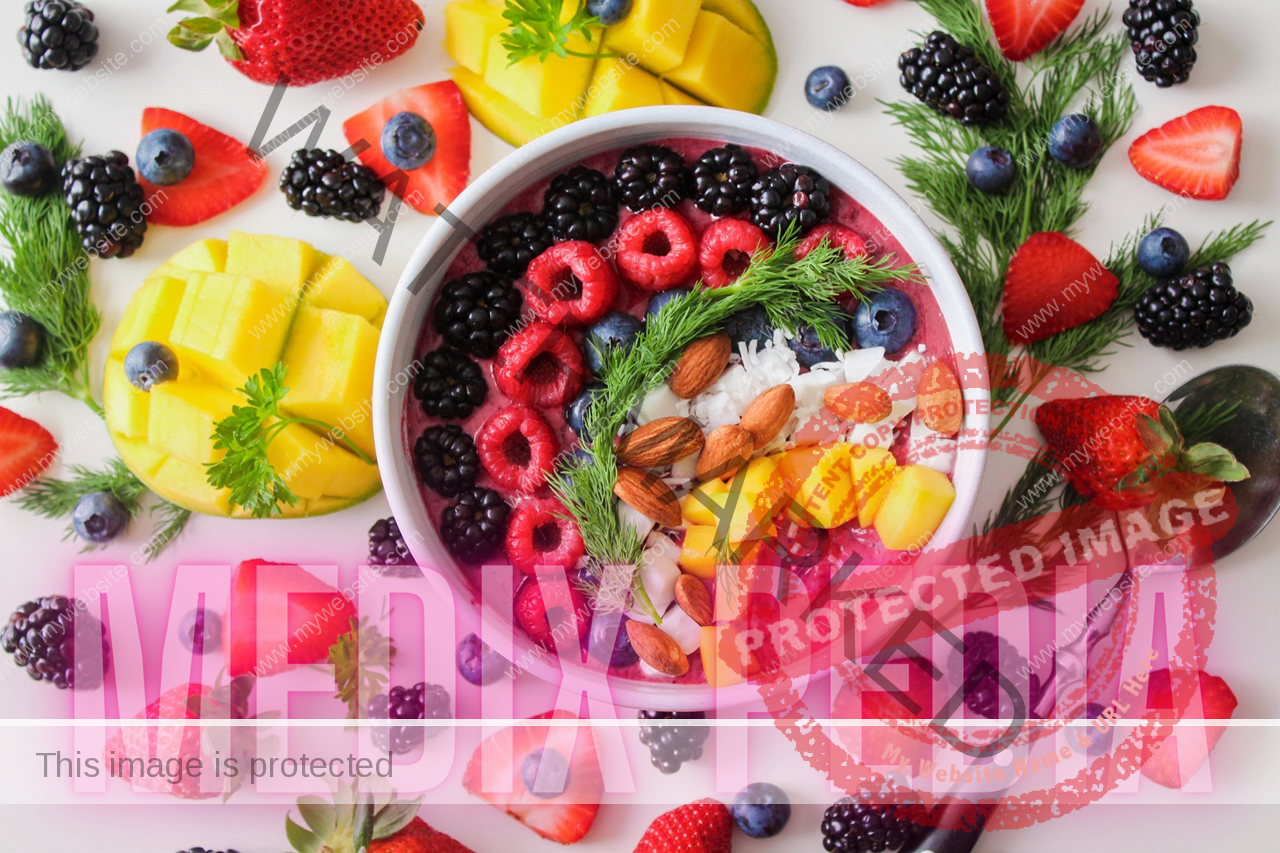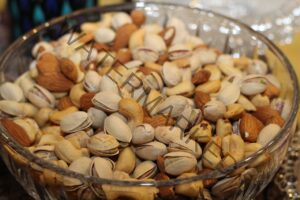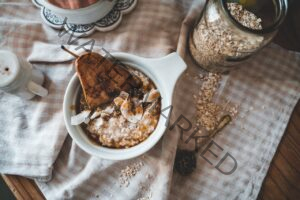The Top 9 Foods and Beverages to Eat or Drink Before Bed for a Best Night’s Sleep
The 9 Best Foods and Drinks to Have Before Bed
Overview
Overall health and well-being depend on getting a good night’s sleep, and the foods and beverages you consume before bed have a big influence on how well you sleep. Selecting the correct foods and beverages might increase the likelihood of a pleasant night’s sleep by promoting relaxation and regulating hormones associated with sleep. For a restful and revitalizing sleep, these are the top nine meals and beverages to consume prior to going to bed.
Cherries
Melatonin, a hormone that controls the sleep-wake cycle, is naturally found in cherries. Eating a glass of sour cherry juice or a handful of fresh cherries prior to going to bed may enhance the length and quality of your sleep.
In addition to being a delicious and sweet fruit, cherries, especially tart cherries, have other health advantages, including the ability to improve sleep quality. Here’s why cherries can make a great pre-bedtime snack, especially when they’re fresh or in sour cherry juice:
Cherries are one of the few naturally occurring foods and beverages sources high in melatonin, a hormone that is essential for controlling the circadian rhythm. Melatonin assists in letting the body know when it’s time to relax and get ready for bed. Eating cherries or drinking sour cherry juice might increase melatonin levels, which may enhance the onset and quality of sleep.
Anti-Inflammatory Characteristics:
Antioxidants and their anti-inflammatory qualities are found in cherries, especially tart cherries. Cherry anti-inflammatory chemicals may help reduce inflammation in the body, which can contribute to sleep difficulties by encouraging a more relaxed state that is favorable for sleep.
Controlling Circadian Rhythms:
Cherries contain melatonin, which helps control circadian rhythms in addition to helping people fall asleep. Cherry eating on a regular basis may help you maintain a more regular sleep-wake cycle, which will help you feel more in control of your sleep patterns.
Natural Sweetness:
Without the need for processed snacks or extra sweets, cherries’ natural sweetness can sate evening sweet tooth demands. This makes them a better option for your health than a lot of other pre-bedtime snacks that could be high in sugar or artificial components.
Packed with Nutrients:
Cherries are an excellent source of dietary fiber, potassium, and several vitamins, including vitamin C. A diet high in foods and beverages promotes general health and wellbeing, which can help with sleep inadvertently.
Almonds
High in magnesium, almonds are a great food for fostering calm and enhancing the quality of sleep. A teaspoon of almond butter or a tiny handful of almonds can make a delicious pre-bedtime snack.
Not only are almonds a great and practical snack, but they also have several health advantages, one of which is that they help you sleep better. These nutrient-dense nuts have unique qualities that make them an especially excellent option for a pre-bedtime snack. They are full of vital nutrients that support general wellbeing.
Magnesium Content:
Magnesium, a mineral that is essential for fostering calm and restful sleep, is abundant in almonds. One neurotransmitter that magnesium helps control is melatonin, foods and beverages which is the hormone that tells your body when it’s time to go to sleep. Consuming foods high in magnesium, such as almonds, can help you get a better night’s sleep.
Protein Power:
Almonds are a good plant-based source of protein, a macronutrient that is necessary for a balanced diet. Before going to bed, consuming a modest amount of almonds will help balance blood sugar levels and avoid energy crashes that could interfere with your sleep.
Good Fats:
Monounsaturated and polyunsaturated fats, which are abundant in almonds, are good for you. In addition to being heart-healthy, these fats aid in satiety, making you feel full and avoiding late-night cravings that could interfere with your sleep.
Tryptophan is an amino acid found in almonds.
It is a precursor to melatonin and serotonin. Tryptophan is well-known for helping people go asleep, and adding almonds to your nighttime routine can encourage your body’s natural synthesis of these relaxing neurotransmitters.
Controlling Blood Sugar:
Due to their low glycemic index, almonds have little effect on blood sugar levels. Because stable blood sugar levels are crucial for avoiding sleep disturbances, almonds are a great option for anyone looking for a pre-bedtime snack that won’t result in blood sugar spikes or crashes.
Warm Milk
There’s science behind the age-old treatment of drinking warm milk before bed. Tryptophan, an amino acid found in milk, helps the body produce melatonin and serotonin, which in turn promotes greater sleep and relaxation.
Warm milk before bed is an age-old custom that has been scientifically proven to be beneficial for promoting restful sleep, not merely a soothing habit. Before going to bed, warm milk can be a great option for the following reasons:
Milk includes an amino acid known as tryptophan, which is a building block for the neurotransmitters melatonin and serotonin. These substances are essential for controlling sleep-wake cycles. Serotonin, which is derived from tryptophan, can be further transformed into melatonin, the hormone that tells the body when it’s time for sleep.
Benefits of Calcium:
Milk is a great way to get calcium, which is essential for healthy muscle function. Warm milk is one food high in calcium that can help relax muscles and assist the body get ready for sleep. This can be especially helpful for people who get cramps or tense muscles at night.
Comfort and Routine:
Setting up a nightly schedule is crucial to telling your body when it’s time to relax. Warm milk can serve as a reassuring ritual that establishes a feeling of routine and alerts your body when it’s time to get ready for bed.
Hydration:
Warm milk helps you stay hydrated, but the heat itself can be comforting. It may be simpler to go from wakefulness to sleep when the milk is at the right temperature since it might help the body become more relaxed and peaceful.
Comfort from infancy:
Warm milk is often linked to sentiments of security and comfort, especially in the case of infancy. This mental connection may have a relaxing impact, lowering tension and anxiety levels that could otherwise prevent one from going asleep.
Options for Customization:
Warm milk is easily adaptable to personal tastes. You can customize your warm milk beverage to your taste, using cow’s milk, plant-based substitutes like almond or oat milk, or adding a dash of cinnamon or honey.
Minimal Caffeine Content:
Warm milk contains very little caffeine in comparison to caffeinated drinks. Due to caffeine’s stimulant properties, which can disrupt the body’s natural sleep-wake cycle, drinking beverages with reduced caffeine content in the evening can help improve the quality of your sleep.
Digestibility:
It’s important to have warm milk before bedtime because it’s often easier to digest. Eating large or challenging-to-digest meals right before bed might cause pain and interfere with sleep. One pleasant and calming choice that is easy on the stomach is warm milk.
Kiwi
This wholesome fruit has been connected to better sleep. It has antioxidants, folate, and serotonin, which may help control sleep cycles. A delicious and healthy addition to your nightly ritual can be eating a kiwi approximately an hour before bed.
The little, vivid green fruit known as kiwi is not only a tasty addition to your diet but also a great option for a pre-bedtime snack that can help you sleep better. Here are some reasons to think about adding kiwi to your nighttime routine:
Packed with Serotonin:
Serotonin is a neurotransmitter that is essential for controlling sleep that is found in kiwis. Melatonin, the hormone that tells the body to get ready for sleep, is made up of serotonin. Eating foods that naturally contain serotonin, such as kiwis, may help you get better sleep.
Antioxidant Power:
Rich in phytochemicals and vitamin C, kiwis are a great source of antioxidants. Antioxidants aid in the body’s reduction of inflammation and neutralization of oxidative stress. Kiwi may provide a more calm state and facilitate sleep by reducing inflammation.
Folate Content:
A B-vitamin present in kiwis, folate aids in the production of neurotransmitters, such as serotonin. Sufficient folate levels can facilitate the synthesis of these neurotransmitters, which may improve mood regulation and sleep quality.
Potassium for Muscle Relaxation:
Potassium is a necessary mineral that is involved in both muscle relaxation and function. Kiwi is a rich source of this mineral. Eating foods high in potassium, such as kiwis, may ease tense muscles and promote a more peaceful night’s sleep.
Digestive Health:
The high dietary fiber content of Kiwis is good for the digestive system. Pain or indigestion that could interfere with sleep can be avoided with a healthy digestive system. Consuming foods high in fibre, such as kiwis, promotes intestinal health in general.
Natural sugars and minimal calories: Kiwi is a fruit with natural sugars that adds sweetness without packing on too many calories. Because of this, it’s a good choice for anyone looking for a low-calorie, wholesome evening snack.
Help with Hydration:
Kiwi’s high water content helps with hydration. Maintaining appropriate hydration levels can minimize disturbances like evening thirst that may disturb your sleep. Staying well-hydrated is vital for general health.
Kiwi is convenient and versatile as it is simple to cook and eat foods and beverages. It tastes good on its own and may also be blended into smoothies or added to fruit salads. Its adaptability makes it a practical choice for people who want to change up their pre-bedtime snack options.
Natural Sleep Aid:
Research indicates that kiwis may help induce sleep. According to a study that was published in the Asia Pacific Journal of Clinical Nutrition, frequent kiwi consumption improved the efficiency, length, and initiation of sleep.
Oatmeal
Rich in complex carbs, oats may help elevate serotonin levels. Melatonin is also included in them. For a filling and calming snack, try a small bowl of oats with a few almonds on top.
A traditional and filling breakfast option, oatmeal is also a great alternative for a pre-bedtime snack. Because of its nutritional makeup, it’s a well-rounded choice for encouraging sound sleep. Oatmeal might be a good addition to your night time routine for the following reasons:
Complex Carbs:
Oatmeal contains a lot of complex carbs, which help the blood release glucose gradually. This steady release lessens the chance of blood sugar spikes and drops during the night, which can interfere with sleep.
Small levels of melatonin, the hormone that controls the sleep-wake cycle, can be found in oats. Oatmeal has melatonin, though not as much of it as some other foods, which may nevertheless add to its overall ability to promote sleep.
Rich in Magnesium:
Magnesium is well-known for helping to promote calm and restful sleep, and oatmeal is a wonderful source of this mineral. Magnesium’s ability to relax muscles and help regulate neurotransmitters, such as melatonin, can both lead to a more restful night’s sleep foods and beverages.
Tryptophan is an amino acid found in oats that serves as a precursor to melatonin and serotonin. Tryptophan is well-known for helping people fall asleep, and eating it with your evening snack can encourage your body’s natural synthesis of these relaxing neurotransmitters.
Fiber for Satiety:
Soluble fiber, which is abundant in oats, contributes to a sated and full feeling. By doing this, you can avoid being hungry late at night and possibly avoid having your sleep disturbed by pain or cravings.
Bananas
High in potassium and magnesium, bananas can ease muscle tension and encourage slumber. They also include tryptophan, which is the building block of melatonin and serotonin. Eating a banana as a late-night snack can help you get a better night’s sleep.
In addition to being a handy and transportable snack, bananas are a wholesome choice that can help you get a good night’s sleep. Foods and beverages in Bananas might help promote better sleep for the following reasons, which may convince you to include them in your routine before bed:
Rich in Tryptophan:
Tryptophan is an amino acid found in bananas that acts as a precursor to melatonin and serotonin. These neurotransmitters are essential for controlling the sleep-wake cycle, and foods high in tryptophan, such as bananas, can help promote the creation of these compounds.
Natural Source of Melatonin:
Although bananas don’t contain as much melatonin as other meals, they do contain minute levels of this hormone that regulates sleep. Eating bananas may raise the body’s general melatonin levels, which helps the body get ready for sleep foods and beverages.
Magnesium Content:
Magnesium helps to relax muscles and can help create a calming feeling. Bananas are a rich source of this mineral. This soothing impact on the muscles might be especially helpful for people who get cramps or tense muscles at night.
Potassium for muscular Relaxation:
Because bananas are high in potassium, they help with muscular relaxation. Sufficient potassium levels are necessary to avoid cramping in the muscles and to enhance their general comfort, which in turn helps you sleep better foods and beverages.
Support for Vitamin B6:
Tryptophan is converted to serotonin and then melatonin by the action of vitamin B6, which is abundant in bananas. Making sure your body gets enough vitamin B6 helps boost the body’s natural sleep-inducing mechanisms.
Herbal Tea (Valerian or Chamomile)
Traditionally, herbal teas have been used to induce relaxation and relieve insomnia. Examples of these drinks are chamomile and valerian root. These teas are a soothing option before bed because they can have a calming influence on the nervous system.
Herbal tea has long been hailed for its calming qualities and ability to induce relaxation, especially types like chamomile or valerian root tea. Adding a cup of herbal tea to your bedtime routine can help you sleep better that night for a number of reasons:
Chamomile for Stress Reduction:
The sedative properties of chamomile tea are widely recognized. It has an antioxidant called apigenin, which attaches to specific brain receptors to induce calmness and lessen anxiety. Before going to bed, chamomile tea can induce a calmness that facilitates relaxation.
Valerian Root as a Sleep Aid:
For millennia, people have utilized Valerian root as a home cure for sleep disturbances. By interacting with neurotransmitters, such as gamma-aminobutyric acid (GABA), which calms the nervous system, Valerian tea may help enhance the quality of sleep.
Absence of Caffeine:
Since most herbal teas don’t contain caffeine, they’re a great option for an evening drink. Since coffee is a stimulant that might make it difficult to fall asleep, avoiding it close to bedtime foods and beverages is crucial for avoiding sleep problems.
Benefits of Hydration:
Drinking enough water is essential for good health in general, which includes restful sleep. Herbal teas help you stay hydrated, and their warm properties can be calming and soothing, encouraging rest.
Ritual & Routine:
Creating a nightly routine might help your body recognize when it’s time to relax. Making and enjoying a cup of herbal tea can become into a reassuring and delightful evening ritual that promotes consistency and helps you go asleep foods and beverages.
Turkey
Packed with tryptophan, an amino acid that aids in the production of melatonin and serotonin by the body, turkey is a lean protein source. Including a modest portion of turkey in your evening meal can help you feel more at ease and have better sleep.
Dark Chocolate
A tiny piece of dark chocolate can help you go asleep, even if it’s still best to avoid consuming a lot of caffeine right before bed. Because dark chocolate lacks the high caffeine concentration of milk chocolate, it may help promote relaxation because it contains precursors to serotonin.
Summary: Top Foods and Beverages
Making healthy food and beverage choices prior to going to bed can improve the quality of your sleep. You may encourage relaxation, control sleep hormones, and increase the likelihood of a pleasant night’s sleep by incorporating these nine sleep-friendly activities into your nightly routine foods and beverages. For the best sleep hygiene, stay away from large meals, spicy foods, and too much caffeine right before bed. These scrumptious and healthy pre-bedtime options will guarantee you sweet dreams.















Oukaci Izaruj lie.qgoj.medixpedia.com.hhb.op http://fjksldhyaodh.com/